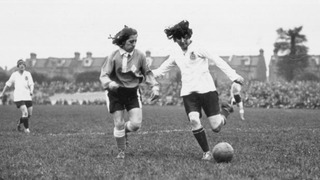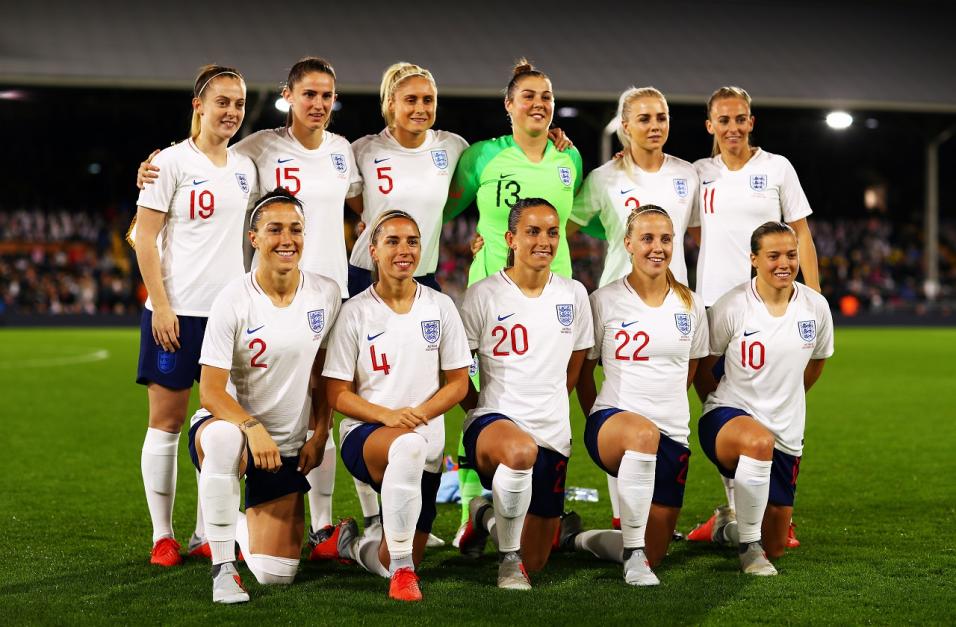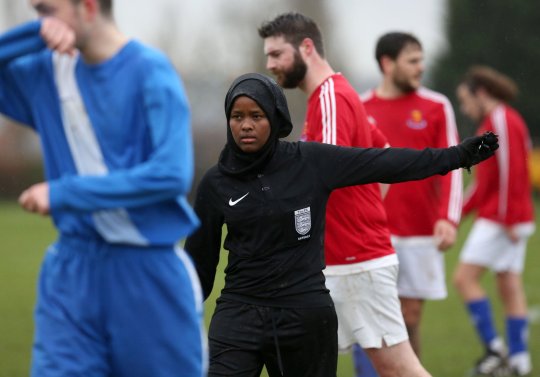
It’s been over two months since the FIFA Women’s World Cup 2019 captured the nation’s attention with some thrilling games; the tournament didn’t fall short of goals with 146 in total, and England’s semi-final v USA had us on the edge of our seats.
Viewership for that game was at a record of 11.7 million, making it the UK’s most-watched women’s football game of all time, and the most-watched programme of 2019 so far. So how do we create a legacy post-World Cup?
History
In the early 20th century, women’s football was very popular and grew in popularity as men went to war. The famous Dick Kerr Ladies played St Helen’s Ladies on Boxing Day in 1920, attracting over 53,000 spectators to Everton’s Goodison Park with thousands of fans watching from outside. Higher attendance figures than most football clubs today!

However, in 1921 the FA decided it would implement a ban on female participation in the sport. Football was considered to be unsuitable for women and they believed it should not be encouraged. Luckily, views began to change in the 1960s, with the Women’s Football Association (WFA) being formed in 1969. The ban on women’s football was officially rescinded in 1971 by the FA after persuasion from the WFA. We have to wonder what would have happened if women’s football was never banned… Would it be more popular than the men’s game today? Would we see more equality – or even total equality – in the sport?
England wasn’t the only country to ban the sport either, with bans in Norway (1931), France (1932), Brazil (1941), and West Germany (1955). In contrast, in 1972 the USA added legislation (named Title IX) that prohibited discrimination on the basis of sex in any educational program or activity that received federal funding. In other words, when it came to football (or soccer) in school, men and women were awarded equal rights. This is probably why the USA are such powerhouses of women’s football today! However, they still can’t get equal pay from the US Soccer Federation.
On the rise again…

Since the first FIFA Women’s World Cup in 1991, football has seen steady growth amongst women across the world. With an average of 150,000 female players competing in the affiliated league and cup competitions in England alone. Nevertheless, there is still room for improvement and growth.
Referee Stephanie Frappart also took charge of the 2019 UEFA Super Cup, making her the first woman to take charge of a major men’s UEFA cup final.
The game has come on a long way in many ways, in terms of the Womens’ World Cup which we all watched this summer and showed how much respect the women’s game is getting. We’re trying to make strides and there’s a long way to go but [the cup final] will be a huge moment because it’s one more step in the right direction.
Stephanie Frappart
Furthermore, the FA Women’s Championship started last weekend and the FA WSL returns this weekend with a massive game. Manchester City and newly-promoted Manchester United will battle it out for their first three points of the season at the Etihad Stadium. Tickets for all WSL and Championship games can be found here.
So how do we get more young females involved in football?
Maybe we should start by giving them the opportunity that was once taken away from them? Or maybe we could just make all women’s football more accessible to watch.
Well, The FA may have done just that! They recently announced that all 132 WSL games and select Championship games would be streamed live via their app. This is a massive step which will hopefully increase the viewership of women’s football. However, some don’t agree with the move, stating that it will lower stadium attendances.
Female involvement doesn’t have to stop at the participation level. Roles in football go beyond playing; coaches, referees, administrators, pundits, volunteers all contribute to the success of the sport too.
Organisations we work with that are making a difference:
We work with a number of organisations that sit at the forefront of football and are making a real impact when it comes to female participation. Some of these organisations include the Liverpool FC Foundation and the Manchester Football Association.

You can read our blogs about the LFC Foundation below:
– Why Liverpool FC Foundation are using TeamKinetic volunteer software.
– A day volunteering at Liverpool FC Foundation.
– The Liverpool FC Foundation’s impact on volunteers with a disability.

TeamKinetic caught up with Katherine Jones from the Manchester FA to talk about some of the work they do around the city to impact women’s football.
This is what she had to say…
What is being done at your organisation to ensure women’s football continues to grow, and what things could be done to improve this?
Katherine gave me a long list of great things the Manchester FA is doing to ensure the growth of the women’s game! The full list is as follows:
- Work with leagues to ensure that suitable playing pathways exist, promoting the transition from youth to adult football.
- Work with clubs to support them to develop a full pathway (U7-Open age) for female players to access football.
- Run celebration events to enhance and celebrate the female game.
- Raise the profile of the game through focussed promotion (Women’s World Cup, Women’s Euros, Olympic games).
- Support clubs and organisations to run the FA Wildcats programme as the main engagement programme for 5-11-year-old girls.
- Work with the local school sports organisers to facilitate and support girls football programmes across Oldham, Tameside, Trafford, Manchester and Salford.
- Deliver a monthly further education football and futsal offer.
- Drive and develop a monthly futsal offer for girls in the U8-U16 age group.
- Deliver a recreational female football opportunity on a weekly basis.
- Create a full pathway from casual entry-level participation, to our highest placed amateur teams within the regional league structure.
- Support players performing well within grassroots football to access the Regional Talent Club pathway (Manchester City & Manchester United Girls RTC’s).
- Support female referees and coaches along with officials working within the female game.
Have you seen higher success rates in any particular approaches so far?
“We’ve seen a lot of success across the board, to be honest, Wildcats is our flagship entry-level programme to engage new girls within football, and this has seen lots of success in bolstering mini soccer (5-11) participation. The programme has been rolled out across clubs and providers and we have 33 centres currently running across Manchester, which provides an opportunity for girls to access football, within a short travelling distance regardless of where they live within Manchester.”
Have you experienced any pushback from clubs/leagues around Manchester?
“We haven’t seen any pushback really, because the vast majority of people now understand the emphasis and importance of facilitating football opportunities for female players, and people are much more engaged with female football at the top level, so they appreciate the technical ability level that female players can reach.”
Why is it important to get more women involved in football/football volunteering?
“The importance of these opportunities and the role models involved in the game is significant to inspire the next generation of female football, and to ensure that the game continually grows as the first choice sport for women in England.”
I would like to thank Katherine for her time, answering my questions gave great insight into all the amazing work the Manchester FA do!
The importance of female volunteers in women’s football

Football is the most popular sport in the world! Played by millions of people each day, but it simply wouldn’t be possible without volunteers.
There isn’t a football game or competition that doesn’t involve at least one volunteer. It goes without saying, volunteers are an integral part of sports success. This plays an even bigger role in women’s football!
The increase of female participation in football calls for more volunteers to ensure the game continues to expand and grow. By having more regular female volunteers, young girls getting involved in football/football-related activities can receive the support they deserve.
How volunteers can help football
There are a number of roles and activities volunteers can get involved in to help:
Volunteer with your local club
Most local clubs are always in need of volunteers to help out with a variety of roles on offer; from running social media accounts to being a fixture secretary.
Become a first aider
Every week teams play and every week someone gets injured, so there is always a desire for first aiders. St John Ambulance and British Red Cross run first aid training courses.
Become a coach
What better way to inspire the next generation of talented female footballers than to be the one coaching them? There are a number of ways of getting started and its a great way to challenge yourself.
How we can help
TeamKinetic helps to build better volunteer communities by providing great tools for volunteer managers that save time, make a better impact and improve insight. Our goal is to make volunteering easy for everyone no matter what. But don’t take our word for it, why not check out our customer reviews.
For more information on how TeamKinetic can assist with your volunteer management and getting the best out of all your volunteers visit our website, or contact us on – 0161 914 5757

2 Pingbacks